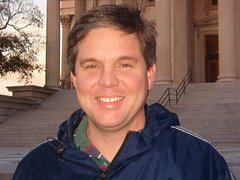
If you casually follow baseball, you probably heard the name Raul Ibanez last week. Ibanez has been in the major leagues since 1996 and currently plays for the Philadelphia Phillies. He is having a wonderful first half season but some question the validity of his fast start.
Again, if you casually follow baseball you know we are knee deep in the steroid era of America's pastime. Every record and any hint of exemplary play reeks of performance enhancement of some sort. Back to Ibanez. He is having a career year for home runs hit. Nothing in his historical performance would have predicted his home run rate year to date.
Last week, several bloggers suggested that perhaps Ibanez was using performance enhancements to gain the bump in performance. Well, Ibanez lit into the accusatory public daring anyone to test him anywhere at any time.
I've heard arguments for and against his outburst. Some say he should get over it because it is the context of baseball that is to blame. All good performance is viewed with suspicion these days. Others admire him for taking a stand. His solid and definitive rejection of the claims certainly make it seem he has nothing to hide.
It got me to thinking on how important it is to speak with data. A few voices mentioned that Ibanez could sue his accusers if he truly was clean. But this was quickly shot down as these were not accusations but rather opinions.
Subjective or objective opinions? In this case the former but let's turn this into an objective opinion.
The graph at the top of the page is an individual moving range chart of Ibanez's home runs per game by year from 1997 to 2009. Several things jump out at me. First, his home run rate increased in 2001 and has been trending upward ever since. Secondly, this is his first year in the National league. I'm not sure if that means anything but I do know that the leagues are different in multiple ways. Last, is this year's rate for home runs. It clearly is different from previous years. Statistically speaking, 2009's rate is beyond the expected range of home runs per game for the hitter. If this was an industrial setting, we would look for an assignable cause for this occurrence. Something out of the ordinary that caused this unusual occurrence.
So the data begs the following questions:
a. Is this season just a drastic continuation of his increasing trends in home runs hit per game?
b. Has something special happened this year to significantly increase his home run rate?




No comments:
Post a Comment